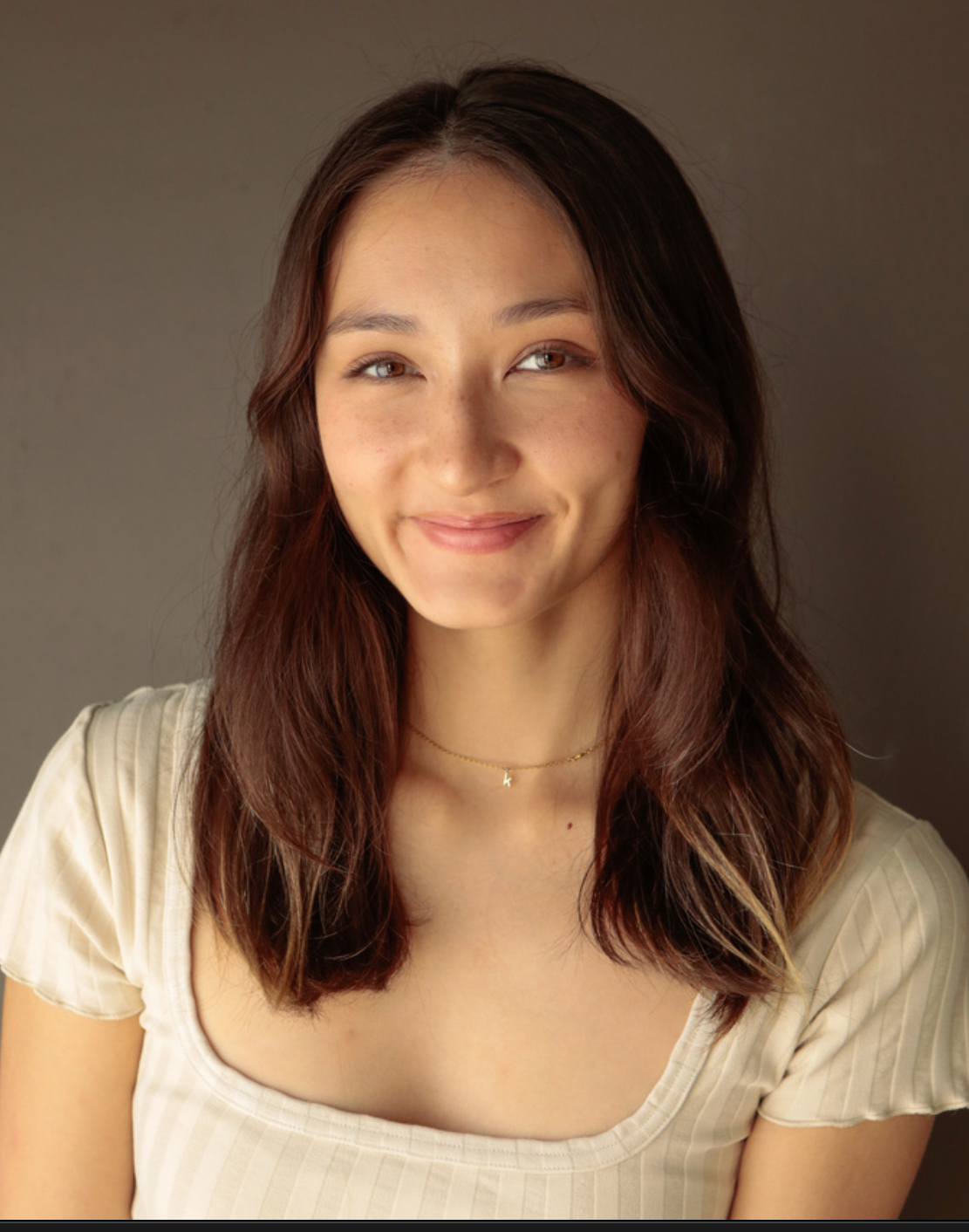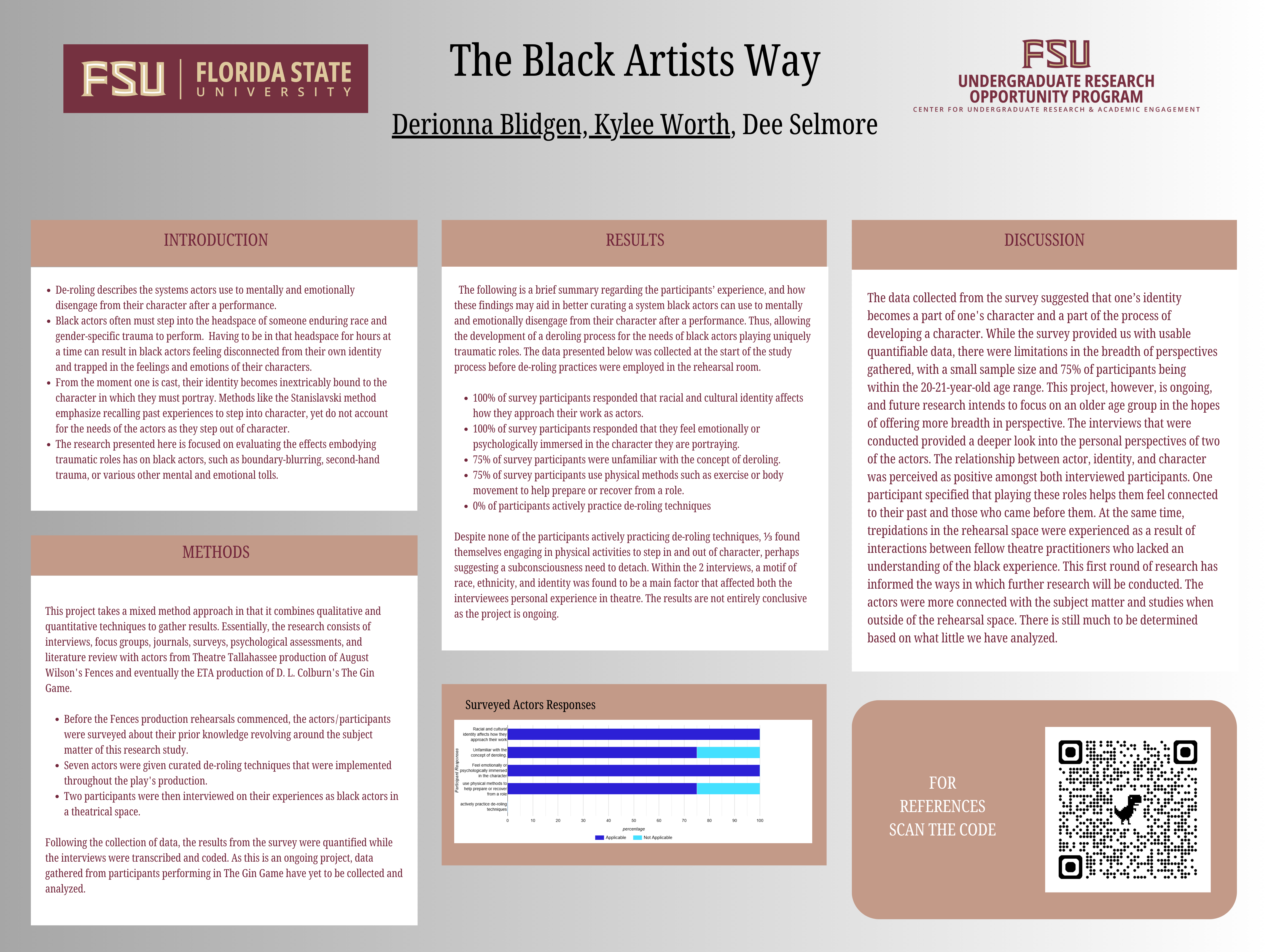Research Symposium
25th annual Undergraduate Research Symposium, April 1, 2025
Kylee Worth Poster Session 2: 10:45 am - 11:45 am/ Poster #176

BIO
Kylee Worth is a first year duel degree student in Theatre and Political Science from Sarasota, Florida. She is passionate about the arts and is planning to pursue a career in Entertainment Law. She is grateful for this opportunity to work on a research project that is vital to the preservation of arts within the community.
The Black Artist’s Way
Authors: Kylee Worth, Dee SelmoreStudent Major: Theatre and Political Science
Mentor: Dee Selmore
Mentor's Department: School of Theatre Mentor's College: College of Fine Arts Co-Presenters: Derionna Blidgen
Abstract
While theatre has been in practice since Ancient Greece, there has been little research about the psychological effects of portraying certain traumatic roles on actors. This is especially applicable to black actors, whose experiences were not taken into consideration by performance theorists such as Richard Schechner, the first theorist to begin recognizing a need for the implementation of de-roling techniques in the rehearsal space. Thus, leaving black actors vulnerable to negative impacts like boundary-blurring and vicarious trauma. De-roling is a set of processes actors use to disengage from the character they are portraying and return to themselves. Through working with actors and conducting research, a method of de-roling can be implemented into rehearsal practices to prevent such negative impacts. While there have been strides made to aid actors in separating themselves from traumatic roles in which method acting has taken place, these efforts neglect to recognize racial differences. Finding de-roling techniques tailored to black actors is imperative to creating a safe environment for black actors to engage with their characters without sacrificing their own identity in the process. While acting in August Wilson’s Fences, participants were given curated de-roling techniques that they used throughout the play's production. Participants were then interviewed on their experience using the de-roling techniques and surveyed on how often their character seemed to resurface after the production end. Although the data is still being analyzed, the results are expected to suggest that the curated de-roling techniques improved the participant's experience when disengaging from their character.
Keywords: Theatre, Arts, Culture, Art opportunities


